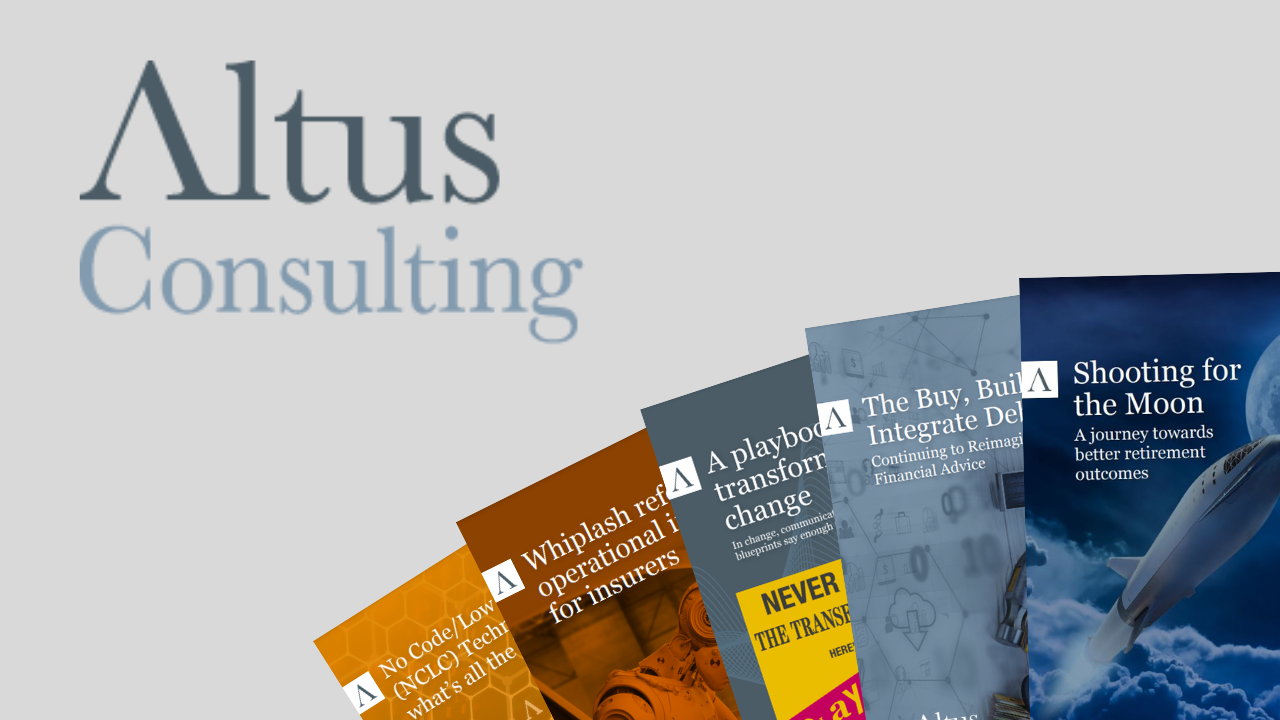Over the last 25 years we have seen the evolution of investment platforms from the original fund supermarkets to the wide service propositions we have now. In May this year, Altus Consulting researched how Platforms have developed across that time and how we anticipate they will look to innovate further in the future.
When describing a platform in our whitepaper, we described them as something that “makes a bunch of ‘things’, from different product providers, available to retail clients”. Platforms have different requirements and purposes depending on the space they are engaged in, from advisor to corporate to direct to consumer. There is a recognition that not everyone will have the opportunity to engage with platforms due to their individual financial situation – but for the proportion of the market who can, it is vital that platforms engage with these individuals appropriately.
Through the last 25 years since their inception, D2C investment platforms have evolved to fit consumers’ needs. At the root of any platform, there should be the thought that they are providing clients with a gateway to investment and giving an opportunity for people to engage with their finances and the service model should be reflective of that thinking. A simple thought but one which I feel sometimes gets lost within the need for platforms to innovate to make them stand out within the crowd!
A key initial thought for customers before engaging with a platform will be an awareness of their financial goals. This could be simply to support their family, go on holiday or even to buy a new car! An understanding of how they want to manage their finances and the intentions behind wanting to engage with their finances is vital when evaluating the requirements they expect from their investments. This isn’t always the case however…
Financial awareness is a key topic within the industry, where consistent low levels of engagement amongst those who do not have the knowledge or understanding in respect of financial products and planning is a concern. A lack of knowledge in turn creates a lack of self-confidence to ask for support to make informed decisions on how they should be managing their assets. In contrast, financially educated individuals will often engage with their finances and in turn, platforms. The challenge is to engage the members of the public who aren’t as financially educated, showing them the impact of a simplified, accessible way of engaging with their finances to help build future financial resilience.
A crucial importance should be placed on the customer having a full understanding of the options available to them through the platform. Education is important to give the customer a grounding and understanding to be able to evaluate their requirements, or even to know that they need help. This is an opportunity for the D2C market where they can provide a mechanism and gateway to engage with finances, but also provide an understanding of the options available through their product and asset selection.
Studies have shown that people will often defer or avoid difficult or long tasks, so the need to ensure platforms are process efficient and customer friendly is vital to capturing initial engagement and providing an accessible experience to develop ongoing participation with the platform. Throughout each step of the client journey simplicity is key. Customers want a smooth journey from instruction through to execution, which often means ‘the quicker the better’. But platform providers have a duty to support and nurture the customer at each stage to give them the tools they need to confidently make crucial financial decisions.
As technology has evolved across the world, everyone expects to be able to access everything straight away; so why should investments be any different? We have already seen in other industries such as banking where digital innovation such as the ability to perform several types of transactions are immediate. No wait, no long-drawn-out process, the transactions and services are readily available to customers with increasing levels of education throughout the end-to-end process at the touch of a button on an app to reduce fraud risk or spark future engagement.
Application of new technologies and engagement models to guide consumers to make sound financial decisions will be essential.
We’ve seen with the introduction of AI for example, businesses are continuing to explore the opportunities available to make the customer journey as efficient as possible. This is a topic both advisor and D2C platforms will focus on in the coming years. In the advised space in particular, despite the push for this technology, research has shown that clients still want a large proportion of their experiences to be in a traditional model. Technology will play a large role over the coming years no doubt. But that traditional trust which comes with human interaction, particularly for material financial decisions, will be vital to providing a service in which clients will want to interact.
The challenge for the industry will be to ensure that the balance is retained. Engaging customers at the right level and the right time is the ultimate goal. Platforms need to continue to put the consumer at the heart of what they do to deliver compelling, efficient, accurate and timely digital services that in turn, will provide investors a gateway to starting their financial journeys




